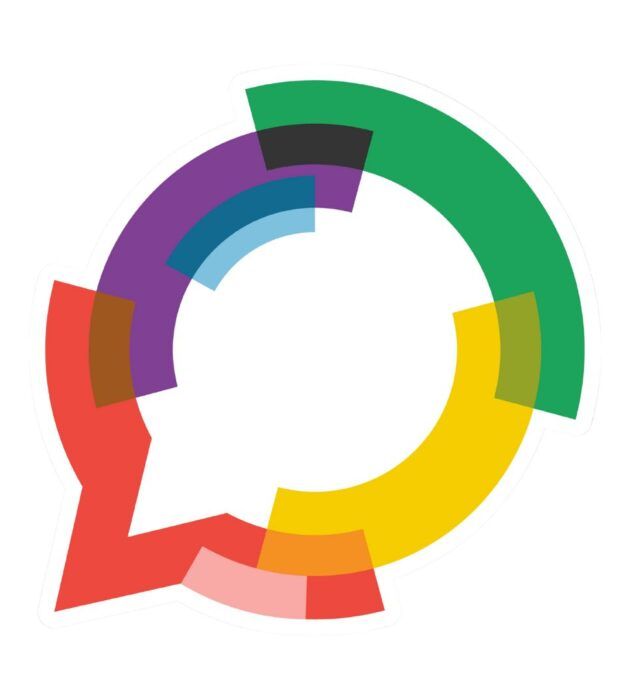
LGBTIQ+ cancer care: how far have we come?
OUTpatients, The UK's LGBTIQ+ Cancer Charity
- Health inequalities
OUTpatients is the UK’s LGBTIQ+ cancer charity. We were founded in 2020 as our Founder discovered first hand that more support was needed for LGBTIQ+ people affected by cancer.
For some, it may be surprising that our community needs specialised support. But for many of our patients and their loved ones, it is a surprise that such vital support was only made available so recently.
The unfortunate reality is that LGBTIQ+ people face barriers at every stage of the cancer journey; from screening, to treatment, to psychosexual support, to managing gender affirming care alongside cancer, LGBTIQ+ people often need tailored interventions and understanding from the healthcare system.
Thankfully, the tide is turning. Over the past few years, there have been some key movements in the sector, and the visibility of the inequalities we face in cancer care have become more visible. We want to take a look at some of these changes, see how far we have come, and ask what needs to happen next.
Improved access to screening
Research shows that queer women, trans men, and non-binary people with a cervix are much less likely to be up-to-date with cervical screenings. Specific steps have therefore been taken to address the barriers faced by these groups.
A major barrier faced by trans and non-binary people was that, until June this year, people registered as male with their GP could not receive automatic invites for cervical screenings, even if they were eligible. However, a recent update to the Cervical Screening Management System means that trans men and non-binary people with a male GP record can now ‘opt-in’ for regular cervical screening invites, making it much easier to stay up-to-date with these life saving tests.
LGBTIQ+ people are also a key target for the upcoming HPV self-sampling programme, which is set to be rolled out by NHS England in 2026. This could open the doors for many people in the community who currently avoid screening due to stigma, dysphoria, or experiences of discrimination in clinical settings.
Bridging the gap between gender services and cancer services
For many trans and non-binary people, gender affirming care is life-saving. Making sure people can safely access this care alongside cancer treatment is an essential, but often complex issue for patients and clinicians alike.
OUTpatients has therefore supported the founding of the UK Cancer and Transition Service (UCATS). This unique online clinic is bridging a core gap in cancer services by clinically supporting trans and non-binary people with cancer. The service provides expert consultation for trans and non-binary people and their care teams about potential interactions between gender care and cancer care.
Specialist guidance for professionals
There is an increasing recognition that LGBTIQ+ people have specific needs in cancer services, and therefore increasing demand for specialist guidance for clinicians. OUTpatients has co-authored best practice guidelines with The Society of Radiographers and British Oncology Pharmacy Association, helping to ensure professionals across the cancer pathway are equipped to treat LGBTIQ+ patients respectfully, equitably, and safely.
We have also provided specialist training to over 10,000 healthcare professionals over the past five years. Cross-referencing the data from the NHS Cancer Patient Experience Survey (CPES) with our work, we can see that the gap is closing on key moments for our community, like having their loved ones with them during diagnosis and treatment.
Support for patients
LGBTIQ+ people have much higher rates of isolation during cancer treatment, and can often feel left out of mainstream cancer services at a time when they desperately need support. OUTpatients’ humble beginnings were to provide the first cancer support group for LGBTIQ+ people that welcomed all cancers at any stage. Since then, we have expanded to provide support for partners, loved ones, and offer targeted support for people living with and beyond breast cancer.
What still needs to be done?
While these changes represent a big step forward for the cancer sector, there is a very long road ahead.
LGBITQ+ people still have much lower rates of screening uptake than the general population. While it is now easier for trans men and nonbinary people people to ‘opt-in’ for cervical screening, there is still no ‘opt-in’ option for breast screening, meaning our community can still have trouble accessing appointments. We also anticipate a growing interest in anal cancer screening among HIV-positive men who have sex with men, which needs to be discussed in terms of patient information and effective implementation.
Our community is still much more likely to avoid healthcare settings in the first place, with 57% of transgender people reporting that they do not seek care even when unwell (TransActual, 2021). Increasing political hostility towards Equality, Diversity, and Inclusion and the transgender community is threatening the hard-won progress we have already made for inclusive cancer care.
To make real, long-term change, we need a healthcare system that is not afraid to openly support LGBTIQ+ people. We need decision makers to meaningfully involve our community in shaping the cancer pathways we use, and for information, clinical settings, and healthcare professionals to be able to accommodate our specific needs.
Nobody should have worse experiences or outcomes of cancer care because of who they are. We have made strong strides of progress, but there is still a long way to go. We need to keep pushing together until everyone can access the screenings, treatment, and support they truly need.